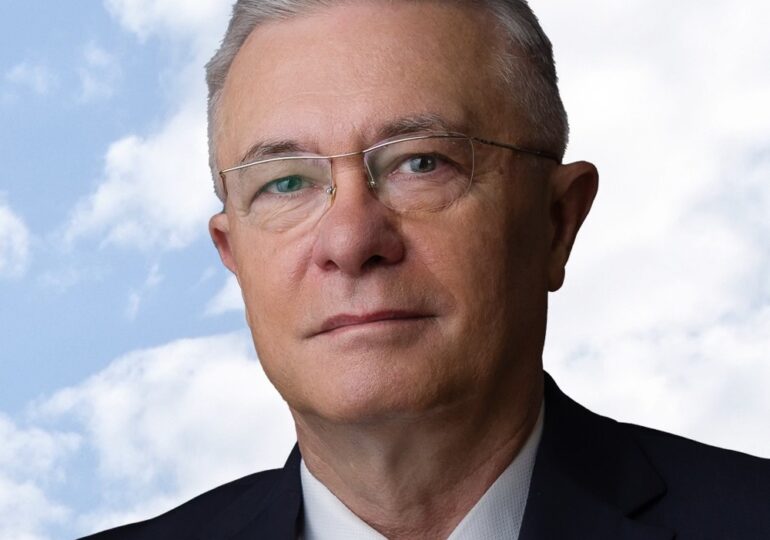Cristian Diaconescu, the head of the presidential chancellery, claims that during the US-Russia negotiations in Riyadh, the Russian delegation requested a new division of spheres of influence and the withdrawal of the United States from Eastern Europe, including Romania, following the Yalta model.
Diaconescu emphasized that the US rejected this request for the time being, but added that Romania has no guarantees that this will not happen.
The former Foreign Minister explained, on Antena3, that Russia tried to gain an advantage over the US and to divide the transatlantic relationship, and in a possible negotiation similar to that of Yalta, Romania could be left without NATO security guarantees.
Diaconescu stressed that Romania was only informed about these discussions.
Regarding the relations between Romania and international partners, Diaconescu believes that there is no question of choosing between the European Union and the United States, but that Bucharest must clearly express its interests and actively participate in strategic discussions.
Finally, Diaconescu warned that the situation is complex and unpredictable, and Romania must remain consistent in its position.
On the other hand, more diplomatically, Foreign Minister Emil Hurezeanu says that the Americans have known us for a long time, they know that we are a loyal ally, and there have been no other misunderstandings so far.
The Foreign Minister revealed what the Romanian side's approach is. "We are at a moment of study," said Hurezeanu, explaining that direct contact with President Donald Trump is being considered. "We have Romanian intermediaries who can play a role," specified the Romanian diplomacy chief, quoted by Mediafax.
Here are some of Cristian Diaconescu's statements from Wednesday evening:
- It's a dramatic moment, I don't want to generate any emotion, but the issue is extremely complicated.
- First of all, the meeting between Russian and American representatives - what did Russia want? Two aspects - to know if it will gain an advantage to make the US an ally for Yalta-type projects.
- The second aspect, in the event that this does not happen, is to convince the American side for divisions in the transatlantic relationship.
- The situation can change from hour to hour or from day to day. They did not manage to convince the Americans.
- Their expectations revolve around the fact that at some point the US would prompt NATO partners in Europe to withdraw the NATO security guarantees on the alignment from 1997.
- So that we, those who joined after 1997, would no longer benefit from these guarantees, leading to a negotiation context where we would not be involved, as in Yalta, and which would obviously lead to the recognition of a Russian sphere of influence.
- It's not my interpretation, it's their statement.
- Equally, obviously, this NATO proximity would need to be limited as much as possible from Russia's perspective, in order to address their deep strategic problems, meaning they would push their source of threat, as they have portrayed it in the public opinion.
- Discussions are raised on issues that President Bolojan announced regarding 1. security guarantees under exceptional conditions for Ukraine. 2. A positioning of the European army, Emmanuel Macron had this idea some time ago, then Bucharest rushed to reject it, we got over that moment.
- The issue will be discussed within Europe. Certain informal formats prevail - groups of states - because there is an attempt to shape a common position through consultations based on threats, interests that are distinct, surely no European NATO or EU member state will be avoided, but for some, their position is known, so their participation is not an added value, but a blocking issue.
- We will try, and Russia will see this as transmitting a signal of solidarity within Europe, as well as in the relationship with the US.
- The openness towards Moscow is only temporary, as the Americans say, let's consider that it's a beginning and not an end.
- Obviously, ending the war in Ukraine so that people no longer die is clearly a solution desired by everyone. The subsequent consequences are not resolved in a day, a week, or a month. America will not jeopardize the relationship with the EU from an economic, strategic, or stability perspective.
- It is clear that, as desired since February 2022, Russia cannot dismantle Ukraine, so there must be a transitional formula. In Korea, there has been a 40-year armistice.
- What I want to say is that it is difficult to anticipate how everything will be resolved. It cannot, simply put, grant a nuclear state the value of a precedent by attacking another state and changing borders.
- The rhetoric may have multiple targets, but in terms of the trajectory, Donald Trump announced this openness towards Russia, taking Moscow out of the diplomatic deadlock it was in, offering an opportunity.
- If Russia does not understand or enters into an escalation logic to obtain much more, Trump will change his attitude overnight.

